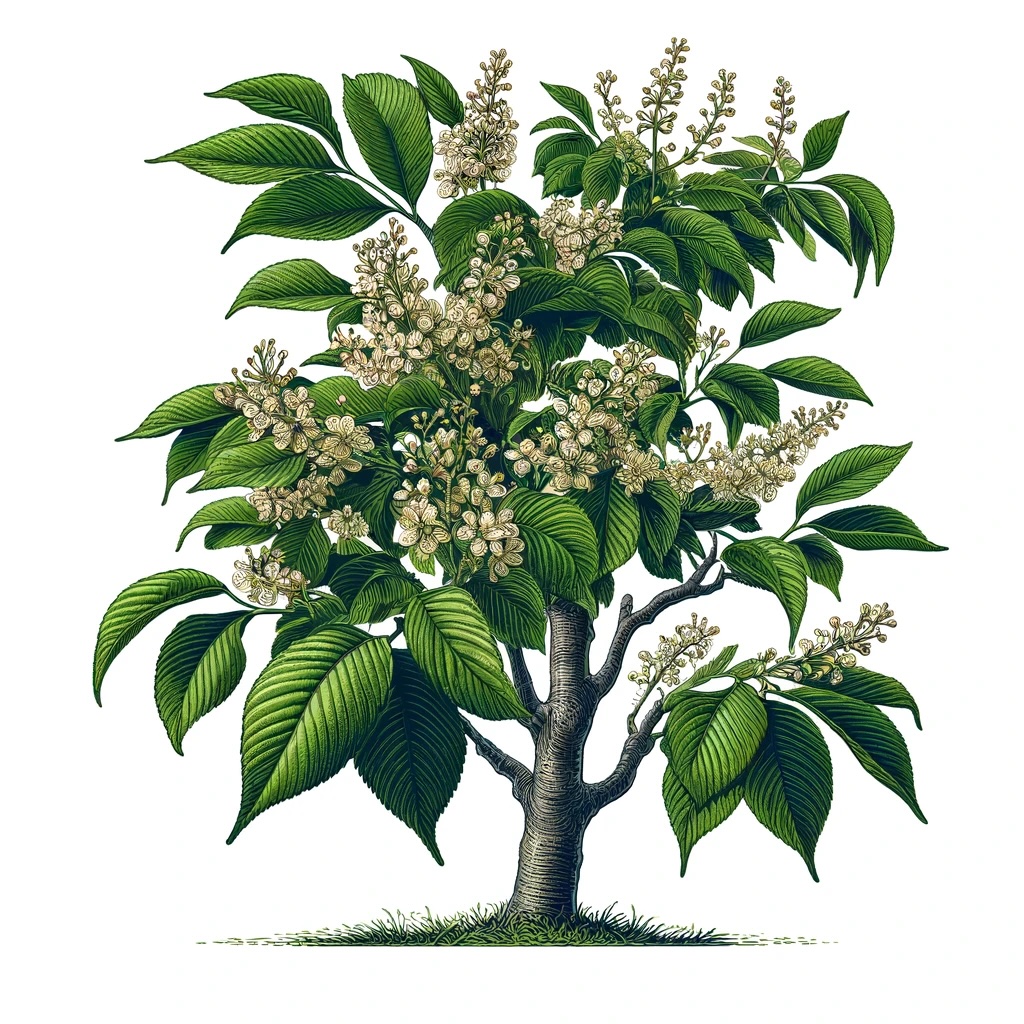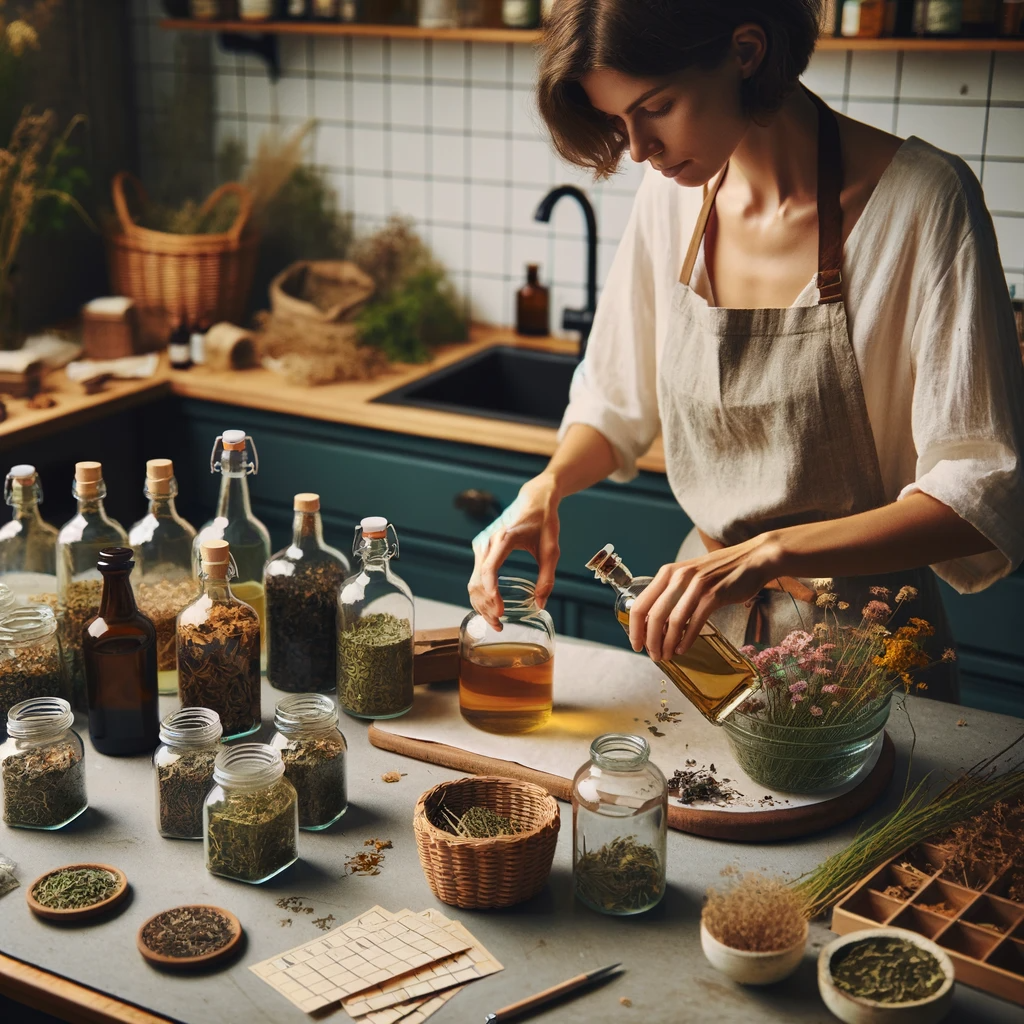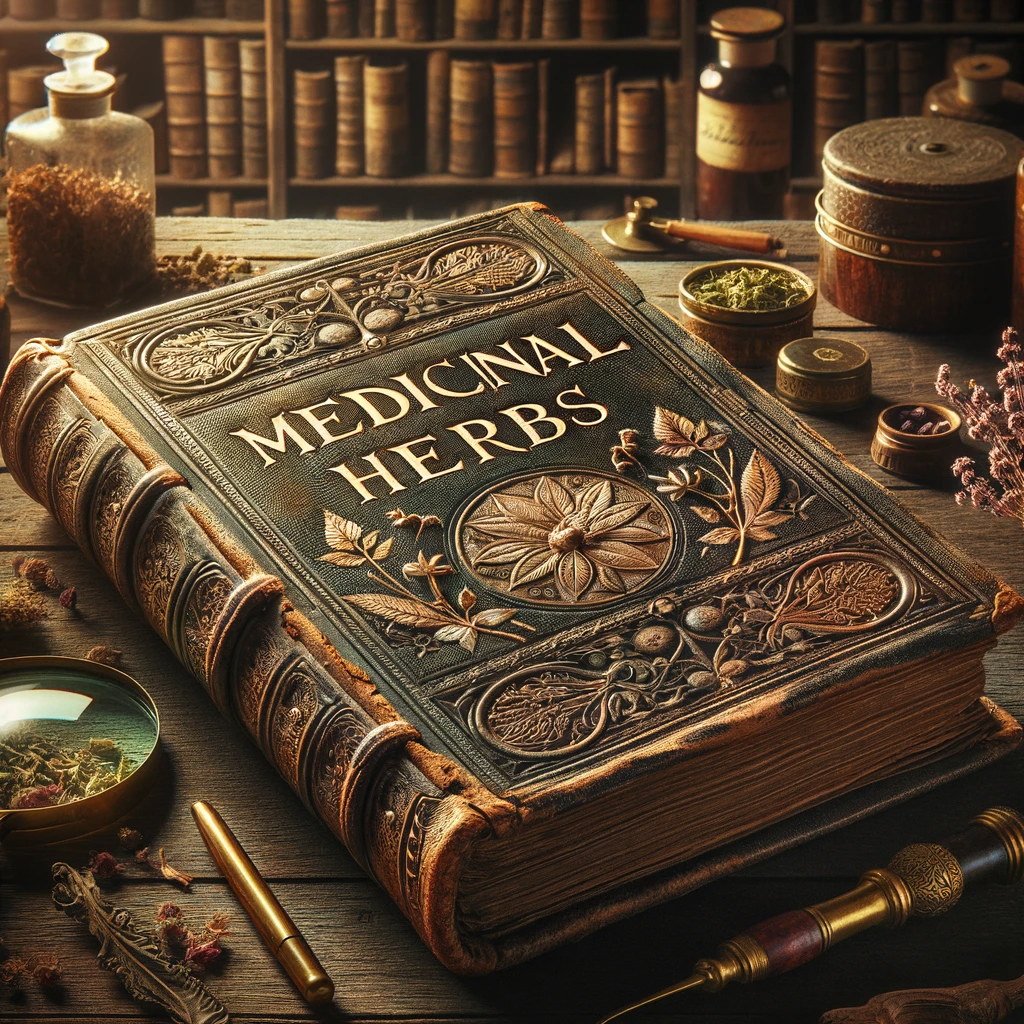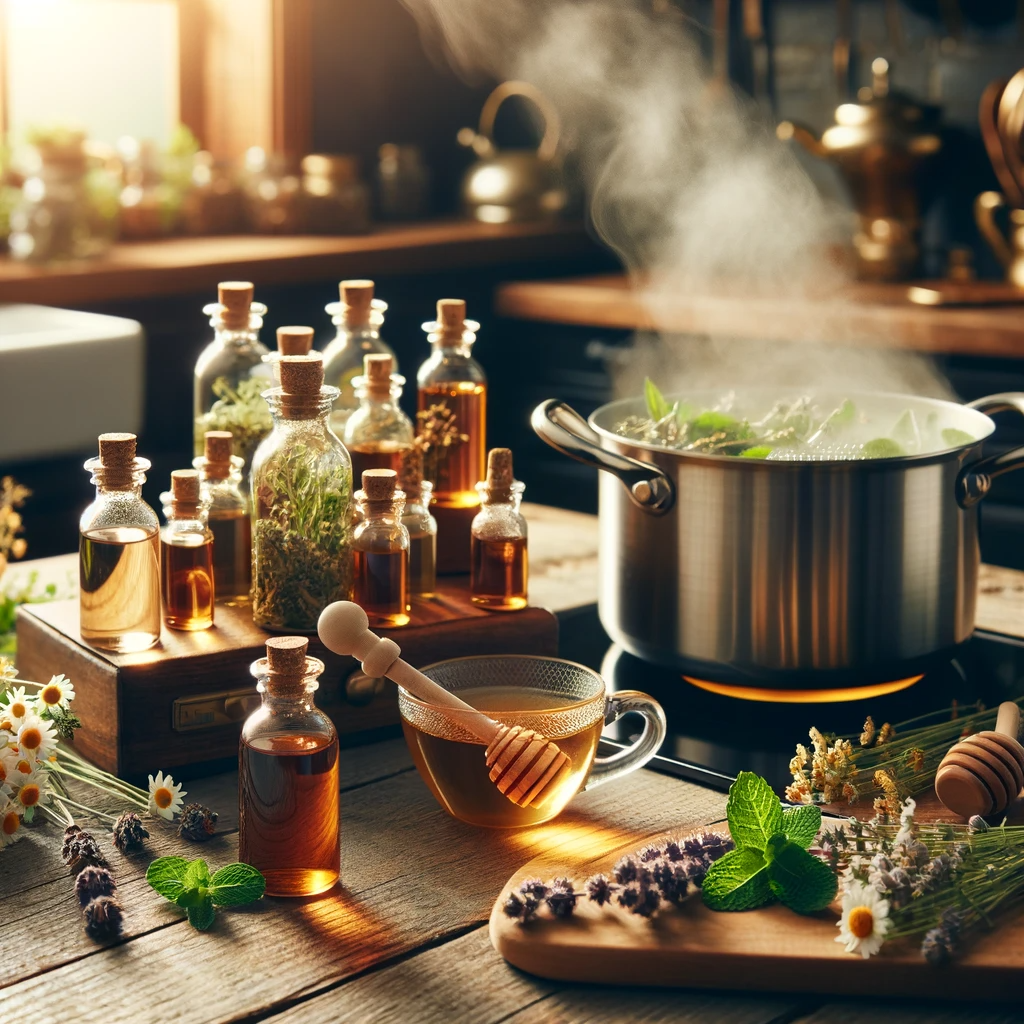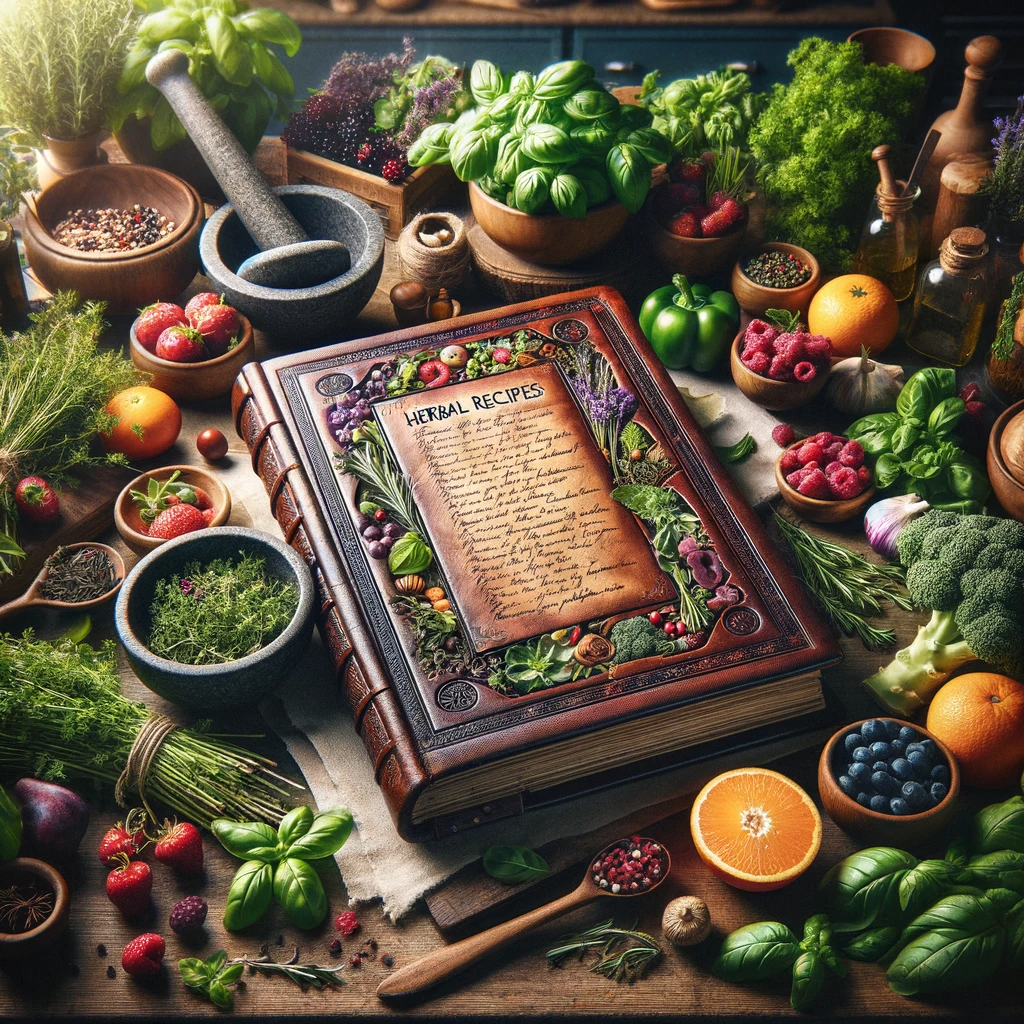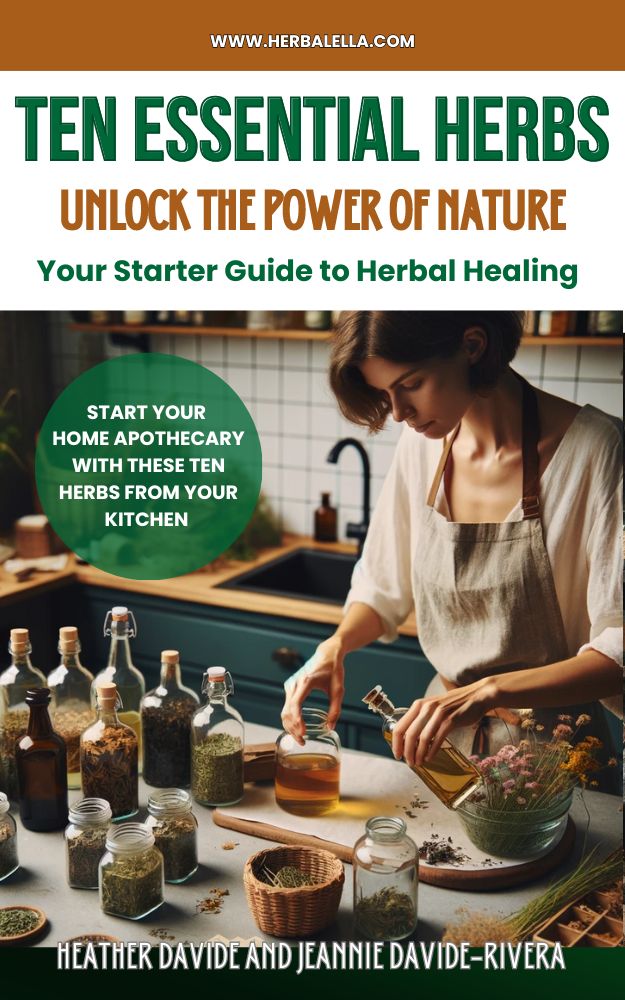This website contains affiliate links for products I use and love. If you take action (i.e. subscribe, make a purchase) after clicking a link, I may earn some tea money, which I promise to drink while creating more helpful content like this.
- Home
- What is Herbalism?
What is Herbalism? A Beginner's Guide to Understanding and Practicing Herbalism
Welcome to the enchanting world of herbalism! Here at Herbal Ella, we are thrilled to guide you through the basics of this ancient yet ever-relevant practice. Herbalism isn't just about using plants for health; it's about forming a connection with nature and understanding how it can harmoniously support our well-being.
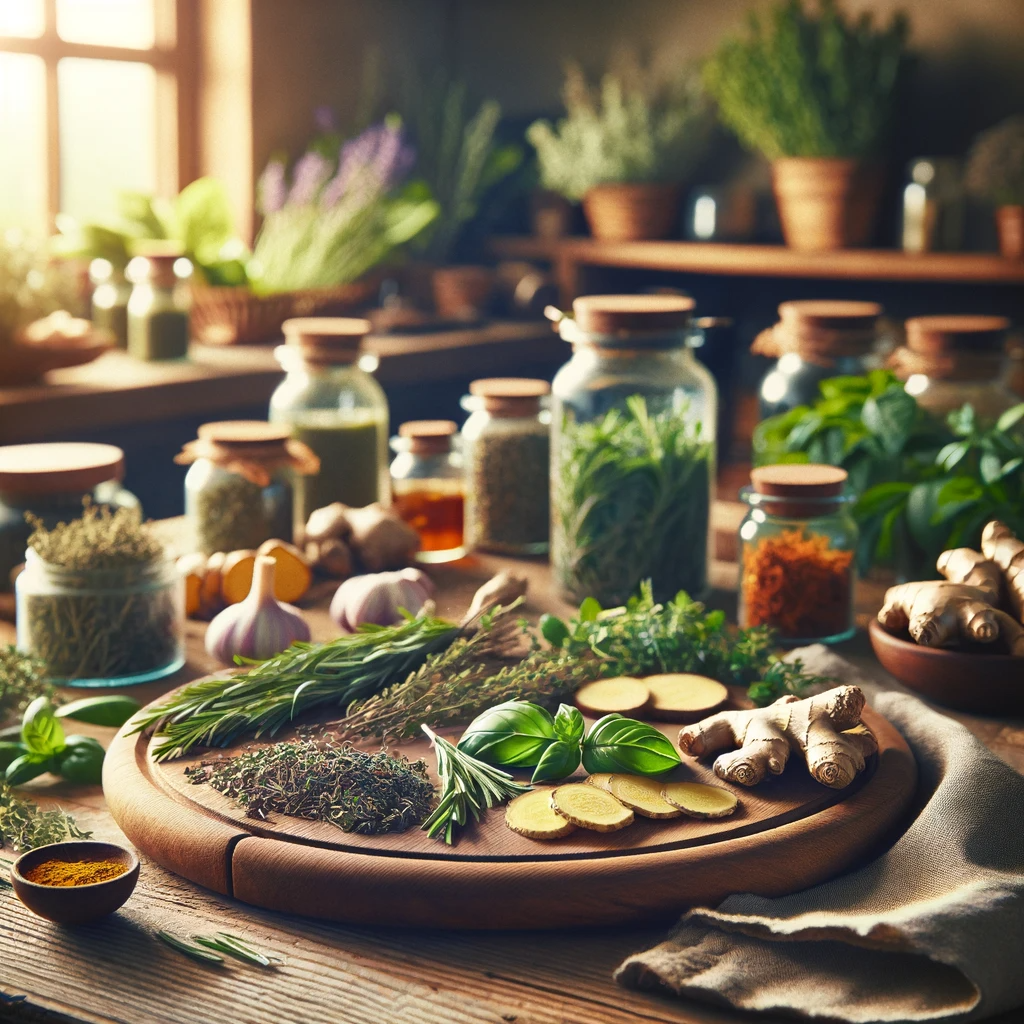
Table of Contents
The Family/Home Herbalist – Herbalism in Everyday Life
The Meaning and Everyday Use of Herbalism
Understanding Herbalism
What is Herbalism?
At its heart, herbalism is an ancient practice, as timeless as the plants it centers around. It's a natural art and science, connecting people with the healing power of medicinal herbs. Across continents and cultures, herbalism has been a cornerstone of wellness practices, showcasing its global and historical significance. From the lush rainforests of the Amazon to the high peaks of the Himalayas, every culture has its unique herbal traditions, passed down through generations. These traditions are not just about using plants for healing; they're a testament to the deep bond between humanity and the natural world.
Herbalism, in its essence, is about understanding and harnessing the natural properties of plants to promote health and well-being. It's a practice that predates recorded history, yet remains as relevant today as ever. In our modern world, where synthetic medicines dominate, herbalism offers a gentle yet powerful reminder of nature's incredible bounty and wisdom.
The Essence of Herbalism
But herbalism is more than a mere collection of recipes and remedies. It's about forming a relationship with the plants themselves. It's a dialogue between the healer and the healing, the nurturer and the nurtured. This connection goes beyond the physical aspects of the herbs; it's about understanding their spirit, their essence.
Let me share a story that beautifully illustrates this connection. In a small village, there was an elderly woman known for her extraordinary healing garden. People would come to her, seeking remedies for various ailments. But before she would hand them any herb, she would take them on a walk through her garden. She'd encourage them to touch the leaves, smell the flowers, and feel the energy of the plants. "Listen to what the plants are telling you," she would say. It wasn't just about picking the right herb; it was about understanding its spirit and how it resonated with their own.
This story exemplifies the essence of herbalism. It's a holistic approach that respects and honors the wisdom of nature, understanding that each plant has a story to tell and a healing power to offer. As we embark on our journey into the world of herbalism, let's keep this in mind: it's a path of connection, respect, and harmony with the natural world.
How Herbalism Works
The Role of Energetics in Herbalism
To understand how herbalism works, it's essential to grasp the concept of Energetics. Think of Energetics as a way to describe the energy or 'vibe' of an herb and how it interacts with our bodies. It's like when you choose a cozy sweater on a chilly day; you're responding to the energetic quality of warmth. Herbs work in a similar way.
Take ginger, for instance. It's known for its warm, spicy quality. Have you ever sipped ginger tea and felt a comforting warmth spread through your body? That's Energetics in action! In herbalism, we use this warmth of ginger to counteract cold conditions, like a stomach upset on a cold day or feeling cold during winter. It's about balancing the energies: using warm herbs to counteract cold conditions and vice versa.
Energetics helps us choose the right herbs by considering their qualities and how they align with what our bodies need. It's a bit like matchmaking – finding the perfect herb that complements and balances your current state.
Herbalism in Action
Let's put this into a practical example. Many of us are familiar with chamomile. It's often seen as a go-to herb for relaxation and sleep. But why is chamomile so effective for these issues? It's because of its gentle, calming energetic properties.
Imagine you've had a long, stressful day. Your mind is racing, and you can't seem to unwind. This is where chamomile steps in. Brewing a cup of chamomile tea is like inviting a sense of calm into your evening. The soothing properties of chamomile help relax your nerves,
easing tension and promoting a peaceful state of mind. It's not just the act of drinking tea that helps you relax; it's the specific calming energy of chamomile that makes it the perfect herb for stress relief and better sleep.
This example of chamomile illustrates how herbalism works in everyday life. By understanding the energetic qualities of herbs, we can select those that best address our current needs, whether it's calming a busy mind, soothing a sore throat, or energizing a tired body. Herbalism is about finding harmony and balance, using the natural properties of herbs to support and nurture our well-being.
Becoming an Herbalist
Who is an Herbalist?
The beautiful truth about herbalism is that it's an inclusive, accessible practice. You don't need a special degree or certification to call yourself an herbalist. At its core, being an herbalist is about intention and connection with the plant world. It's about recognizing and respecting the power of plants to heal and support health.
Think about the last time you brewed a cup of herbal tea or chose a natural remedy for a cold. In those moments, you were practicing herbalism. Whether you're growing herbs in your garden, foraging for wild plants, or simply using herbs in your daily cooking, you're part of the herbalist community. It's about making a conscious choice to incorporate the gifts of nature into your life for health and well-being.
Types of Herbalists
Within the broad spectrum of herbalism, there are various paths one can explore. Here's a glimpse into some of them:
- Clinical Herbalists: These practitioners often work in a clinical setting, sometimes alongside medical professionals. They use their deep knowledge of herbal medicine to help treat specific health conditions, tailoring herbal remedies to each individual's needs.
- Community Herbalists: This role is all about education and sharing knowledge. Community herbalists might lead workshops, write about herbalism, or offer guidance on using herbs safely. They play a crucial role in keeping herbal traditions alive in their communities.
- Medicine Makers: These are the crafters of the herbal world. They create tinctures, salves, teas, and other herbal products. Medicine makers combine art and science to produce remedies that can be used for a variety of health concerns.
Each type of herbalist contributes to the rich tapestry of herbalism in their unique way. Whether you find yourself drawn to one particular path or a combination of several, remember that your journey in herbalism is your own. It's a personal journey that evolves with your experiences, interests, and the connections you make with both the plants and the people you encounter along the way.
The Family/Home Herbalist – Herbalism in Everyday Life
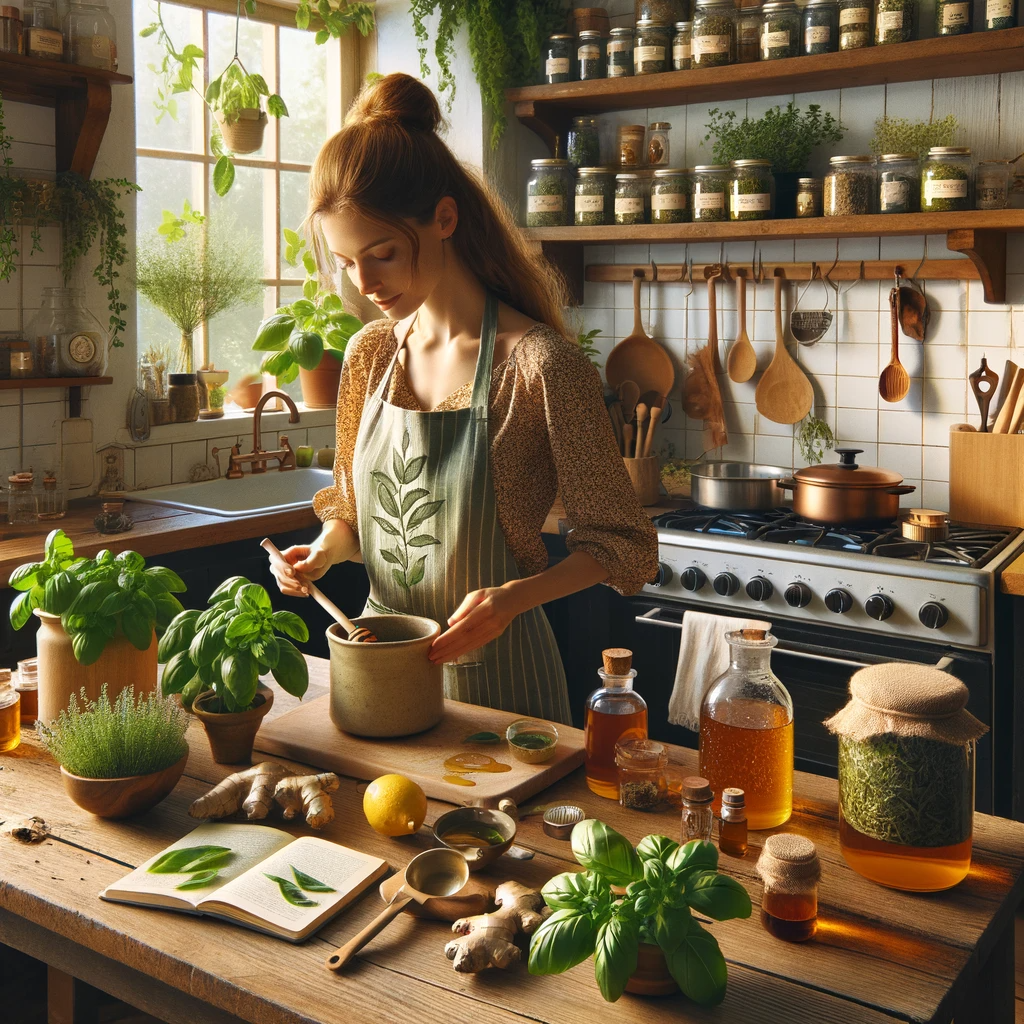
Embracing Herbalism in Your Daily Routine
The family/home herbalist is at the heart of bringing the power of plants into the everyday aspects of life. This role is about integrating herbal wisdom into daily routines, from the kitchen to the family medicine cabinet. It's about the mother who prepares a soothing chamomile tea for a child's upset stomach, the father who concocts a natural cough syrup from elderberry, or anyone who infuses culinary dishes with health-boosting herbs.
Herbalism for Everyone: Making a Difference in Your Home
Simple Steps to Get StartedThe Heart of Herbalism
The beauty of being a family/home herbalist is that it's accessible to everyone, regardless of your background or experience. It's about making small, yet impactful, changes in how you and your family approach health and wellness. Here, herbalism isn't just a practice; it's a lifestyle choice that nurtures and supports the well-being of your loved ones.
- Herb Gardening: Start with growing some basic herbs like basil, mint, or rosemary. Even a small windowsill garden can be a source of fresh, healing herbs.
- Kitchen Remedies: Learn to incorporate herbs into your cooking. Herbs like garlic, ginger, and turmeric not only add flavor but also offer various health benefits.
- Natural First Aid: Create a basic herbal first aid kit with remedies for cuts, bruises, and common ailments like colds and headaches.
- Herbal Crafts: Engage in making simple herbal products like soaps, bath salts, or herbal pillows, which can be both fun and therapeutic.
At its core, the family/home herbalist embodies the essence of herbalism – using nature's gifts to care for and nurture those around them. This role is about more than just using herbs; it's about creating a nurturing environment where health and well-being flourish.
The Meaning and Everyday Use of Herbalism
Herbalism in Daily Life
Incorporating herbalism into your daily life can be a delightful and enriching experience, one that seamlessly blends the ancient with the modern. It's about making small, conscious choices that collectively contribute to a healthier, more balanced lifestyle. Here are some easy ways to bring the power of herbs into your everyday routine:
- Morning Rituals: Start your day with a herbal tea instead of coffee. Options like green tea, peppermint, or a blend of energizing herbs can awaken your senses without the jolt of caffeine.
- Cooking with Herbs: Enhance your meals with fresh or dried herbs. Not only do they add incredible flavor, but they also bring various health benefits. For instance, adding rosemary to roasted vegetables or basil to your pasta sauce.
- Relaxing Evenings: Create a calming atmosphere at home with herbal aromatherapy. Lavender or chamomile essential oils can be used in diffusers to promote relaxation and better sleep.
- Personal Care: Incorporate herbal products into your skincare routine. Herbal ingredients in soaps, shampoos, and lotions can offer gentle, natural care for your skin and hair.
Herbalism as a Gateway
Herbalism is more than a practice; it's a bridge that connects us to our past and the natural world around us. It's a way to rediscover the wisdom of our ancestors, who relied on the healing powers of nature for their well-being. By engaging in herbalism, we tap into a deep well of historical knowledge and tradition, learning from the generations that came before us.
Moreover, herbalism fosters a deeper connection with the environment. It encourages us to pay attention to the seasons, the soil, and the ecosystem – all of which play a crucial role in the growth and potency of medicinal plants. This connection can lead to a
greater appreciation for the natural world and a commitment to its preservation. As we learn about and use herbs, we become more attuned to the rhythms of nature, understanding how deeply intertwined our lives are with the health of our planet.
Herbalism also serves as a reminder of the simplicity and beauty of nature's offerings. In a world where technology and fast-paced living often dominate, turning to herbal remedies and practices can be a grounding and rejuvenating experience. It's a way to slow down, to savor the moment, and to nurture ourselves with the gentle strength of nature.
As we wrap up our journey through the basics of herbalism, remember that this is just the beginning of a beautiful, enriching path. Herbalism is an adventure that invites you to explore, experiment, and connect with the natural world in ways you might never have imagined. Whether it's trying out a new herbal tea, planting your first herb garden, or simply enjoying the aromatic bliss of a lavender-scented room, each step is a step towards a more harmonious and healthful life.
We encourage you to start where you are, use what you have, and do what you can. The world of herbalism is vast and welcoming, ready for you to discover its wonders. Embrace the journey, and let the plants be your guide.
Additional Resources:
Ten Herbal Recipes for Immune Support: A great place to start practicing herbalism in your own kitchen.
Medicinal Herbs A-Z Index: A collection of herbal monographs to start your learning journey.
Herbal Remedies by Ailment: Looking for an herb or remedy for a particular issue? This is the place to go!
Herbal Ella's List of Herbal Recipes: An alphabetical list of all our recipes!
Join our Community
Now, we'd love to hear from you! Share your first experiences with herbalism or any questions you might have in the comments below. Your stories and inquiries are the seeds of our community here at Herbal Ella.
But don't let the conversation end here. Join the Herbal Ella community by subscribing to our newsletter. You'll get regular updates, tips, and exclusive content delivered straight to your inbox. Plus, our website is a treasure trove of free resources, from detailed articles to insightful ebooks, all designed to help you on your herbal journey.
Looking for more? Grab one of our ebooks for an in-depth exploration of herbal remedies and practices. Each page is packed with knowledge, tips, and tricks to help you integrate herbalism into your life.
Remember, every great journey begins with
a single step. Take yours today by joining us at Herbal Ella, where we nurture a community passionate about the natural healing power of herbs. Whether you're a curious beginner or a seasoned herbal enthusiast, there's always something new to discover.
So, subscribe, explore, and grow with us. Let's embark on this herbal journey together, learning and sharing as we go. Welcome to Herbal Ella – where every leaf tells a story, and every story is part of our shared journey in the wonderful world of herbalism.
Subscribe Below | Explore Our Resources | Shop Our Ebooks
Together, let's cultivate wellness, one herb at a time. 🌿✨
READ MORE
Creating Your Own Home Apothecary: Start Here
Setting up Your Home Apothecary: Essential Tools You Need
Essential Herbs for Your Home Apothecary
The information provided on this website is for educational purposes only, and is not FDA approved. It is not to be considered health advice. Always do your own research and seek the guidance of a qualified healthcare practitioner before working with any herb. Herbal Ella is not liable for any action or inaction you take with the materials and information provided. Read here for more information.
Recent Articles
-
Wild Cherry Monograph: Wild Cherry: Nature's Respiratory Ally
May 02, 24 04:52 PM
Discover the healing potential of Wild Cherry with our comprehensive monograph. Explore its benefits and uses for respiratory health. -
DIY Herbal Remedies for Respiratory Health
May 02, 24 03:46 PM
Explore easy DIY herbal remedies for respiratory health with Herbal Ella. Learn to make teas, tinctures, and more to breathe better naturally -
Understanding the Respiratory System - Anatomy and Functions
May 02, 24 03:23 PM
Discover the respiratory system's anatomy and functions with clear visuals and simple explanations to keep you breathing healthily
* Privacy Policy * Disclaimer *

